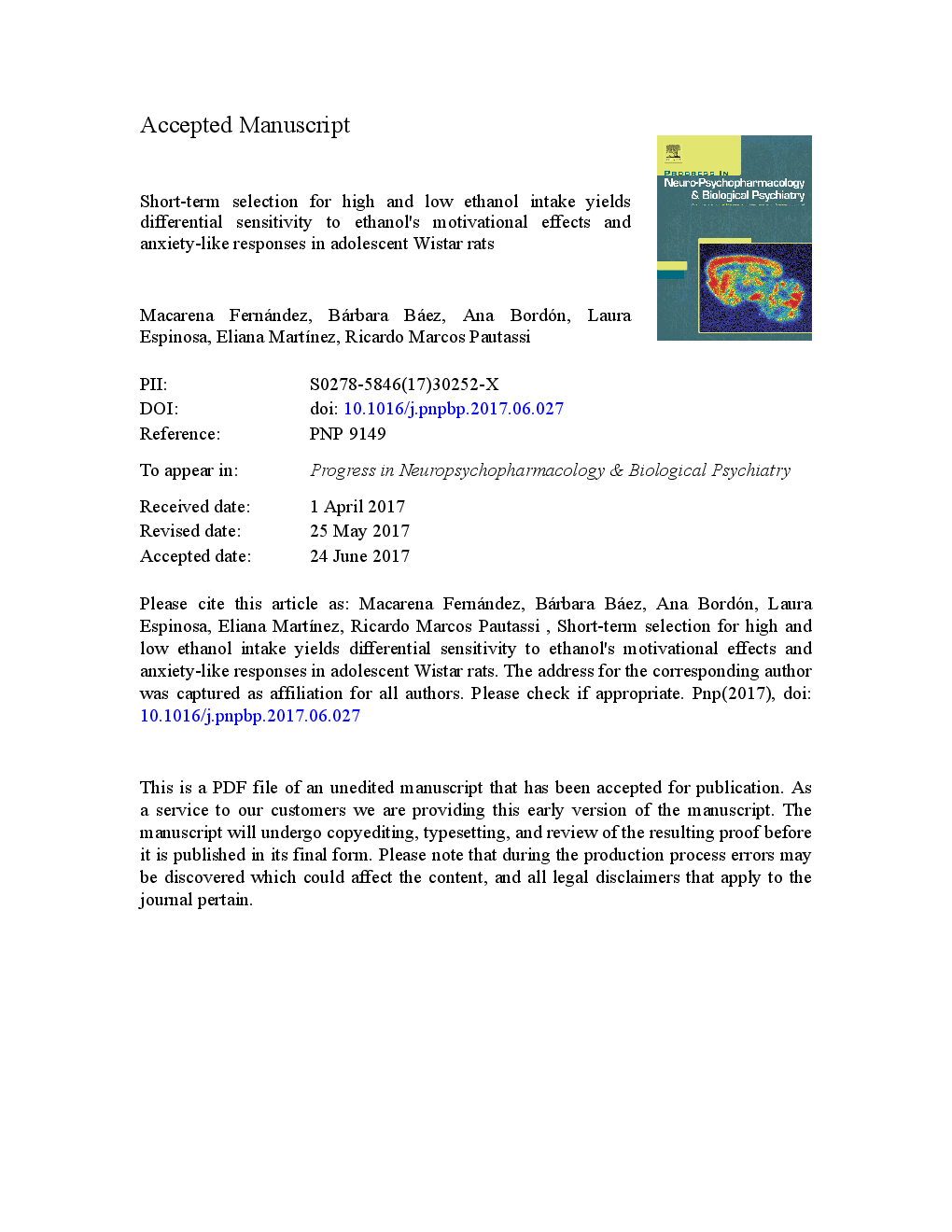ترجمه فارسی عنوان مقاله
انتخاب کوتاه مدت برای مصرف بالا و پایین اتانول حساسیت دیفرانسیل به اثرات انگیزشی اتانول و پاسخ های اضطراب مانند در موش های صحرایی ویستار نوجوان
عنوان انگلیسی
Short-term selection for high and low ethanol intake yields differential sensitivity to ethanol's motivational effects and anxiety-like responses in adolescent Wistar rats
| کد مقاله | سال انتشار | تعداد صفحات مقاله انگلیسی |
|---|---|---|
| 124216 | 2017 | 57 صفحه PDF |
منبع

Publisher : Elsevier - Science Direct (الزویر - ساینس دایرکت)
Journal : Progress in Neuro-Psychopharmacology and Biological Psychiatry, Volume 79, Part B, 3 October 2017, Pages 220-233
ترجمه کلمات کلیدی
پرورش انتخابی کوتاه مدت، نوجوانان، انحراف اتانول، مصرف اتانول،
کلمات کلیدی انگلیسی
Short-term selective breeding; Adolescents; Ethanol aversion; Ethanol intake;

